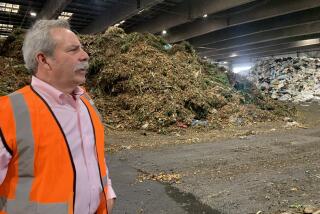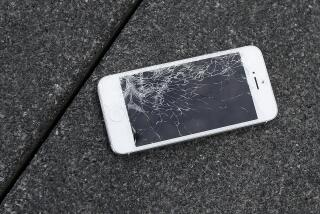REPAIR COMPLAINTS--GETTING THAT CAR ON THE ROAD AGAIN
- Share via
Car repair customers who feel ripped off have a place to turn: the state Bureau of Automotive Repairs, created in March, 1972, with passage of the Automotive Repair Act.
Statewide, the BAR generated $3.5 million for consumers from June, 1988, to May, 1989. In that time, the Orange County office received 1,800 complaints and assisted consumers in recovering $121,000 in refunds, rework on automobiles and bill adjustments.
All new car dealers with a service department, automotive repair shops, independent automotive repair facilities, service stations (that do repair work, not just pump gas) and motorcycle shops are required by law to be licensed with the BAR.
The Orange County BAR has given licenses to 2,596 automotive repair shops, at a cost of $100 per year, and 735 smog certification centers at a cost of $10 per year.
From July 1, 1988, to June 30, 1989, the BAR checked up on 1,300 smog stations by sending in cars with missing parts. They found 290 stations in violation and the owners were cited and fined. They also found 57 stations with second and third violations and five stations at fourth level violations. These five stations stand a good chance of loosing their license. Violators receive a $250 fine for the first violation, $500 on the second violation and $1,500 on the third violation. A fourth violation can result in a hearing and the station can loose its license, but the licensee does have the right to appeal.
HOW TO FILE A COMPLAINT:
Automobile repair customers who take their car to a licensed automotive repair shop only to leave feeling that it was either not repaired, repaired incorrectly or subjected to unapproved repair work have a recourse--filing a complaint against them to the Bureau of Automotive Repairs (BAR).
To file a complaint:
1. Call (800) 952-5210 or file in person to the local BAR office at 710 N. Euclid Ave., Suite 125, Anaheim, (714) 558-6414, between 8 a.m. and 5 p.m. Monday through Friday.
2. Submit to the BAR all available paper work: invoices, written estimates, warranties, guarantees, bill of sale, etc.
The formal signed complaint along with any other paper work will be turned over to a complaint handler, who determines if the Automotive Repair Act has been violated in any way. If so, the two parties try to work out an amicable agreement with the complaint handler as intermediary. If no agreement is reached, a civil suit is filed.
Source: Bureau of Automotive Repairs






